
Biomedical writer Aimee Cunningham is on her second tour at Science News. From 2005 to 2007, she covered chemistry, environmental science, biology and materials science for Science News. Between stints Aimee was a freelance writer for outlets such as NPR and Scientific American Mind. She has a degree in English from the University of Michigan and a master’s degree in science journalism from New York University. She received the 2019 Award for Excellence in Science and Medical Journalism from the Endocrine Society for the article "Hormone replacement makes sense for some menopausal women."

Trustworthy journalism comes at a price.
Scientists and journalists share a core belief in questioning, observing and verifying to reach the truth. Science News reports on crucial research and discovery across science disciplines. We need your financial support to make it happen – every contribution makes a difference.
All Stories by Aimee Cunningham
-
 Health & Medicine
Health & MedicineTreating male partners along with women may help stop bacterial vaginosis
In a clinical trial, treating both partners in a relationship significantly reduced the likelihood of recurrence of bacterial vaginosis.
-
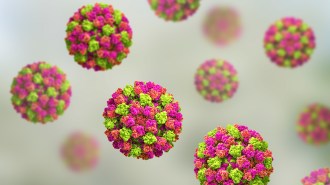 Health & Medicine
Health & MedicineWhy a norovirus vaccine isn’t available — yet
Norovirus is highly infectious and causing a lot of illness this winter. Several vaccine candidates are making their way through clinical trials.
-
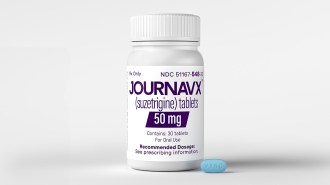 Health & Medicine
Health & MedicineA new kind of non-opioid painkiller gets FDA approval
The new drug, called Journavx, is a non-opioid for treating short-term moderate to severe pain.
-
 Health & Medicine
Health & MedicineCigarettes with less nicotine may help some smokers quit
The U.S. Food and Drug Administration issued a rule to drastically reduce the amount of nicotine in cigarettes and other combusted tobacco products.
-
 Health & Medicine
Health & MedicineIs alcohol linked to cancer? Here’s what the science says
A new U.S. Surgeon General's report describes the link between drinking alcohol and developing cancer. Many Americans aren’t aware of the risk.
-
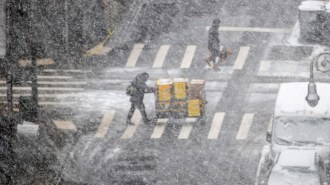 Health & Medicine
Health & MedicineDeaths related to the cold have grown since 1999 in the U.S.
From 1999 to 2022, the rate of cold-related deaths rose from about 4 per 1 million people to 9 per 1 million in the United States.
-
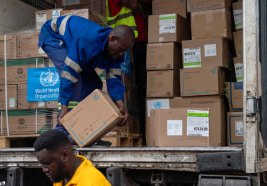 Health & Medicine
Health & MedicineHere’s how public health fared in 2024
Viral outbreaks, extreme heat and access to clean water are among the year’s big public health headlines.
-
 Health & Medicine
Health & MedicineU.S. hospitals continue to shut down labor and delivery services
More than half of rural hospitals and more than one-third of urban hospitals did not offer labor and delivery services in 2022.
-
 Health & Medicine
Health & MedicineVaccines, fluoride, raw milk: How RFK Jr.’s views may shape public health
If confirmed as head of the Department of Health and Human Services, Kennedy could influence U.S. policy on vaccines, drugs and food safety.
-
 Health & Medicine
Health & MedicineYouth tobacco use has gone down, but the work isn’t over
In 2024, tobacco use among middle and high school students reached a record low, but new vapes and other products with nicotine keep coming.
-
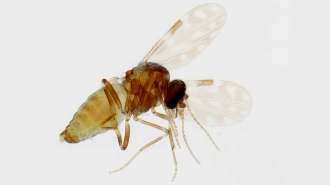 Health & Medicine
Health & MedicineThe virus behind an outbreak in Brazil can spread from mother to fetus
Transmission of Oropouche virus to the womb has been confirmed in two stillbirths and one birth with congenital anomalies that occurred in Brazil.
-
 Health & Medicine
Health & MedicineDrop in vaping drives tobacco product use by U.S. youth to a record low
The fewest number of U.S. middle and high school students are currently using tobacco products since the National Youth Tobacco Survey began in 1999.